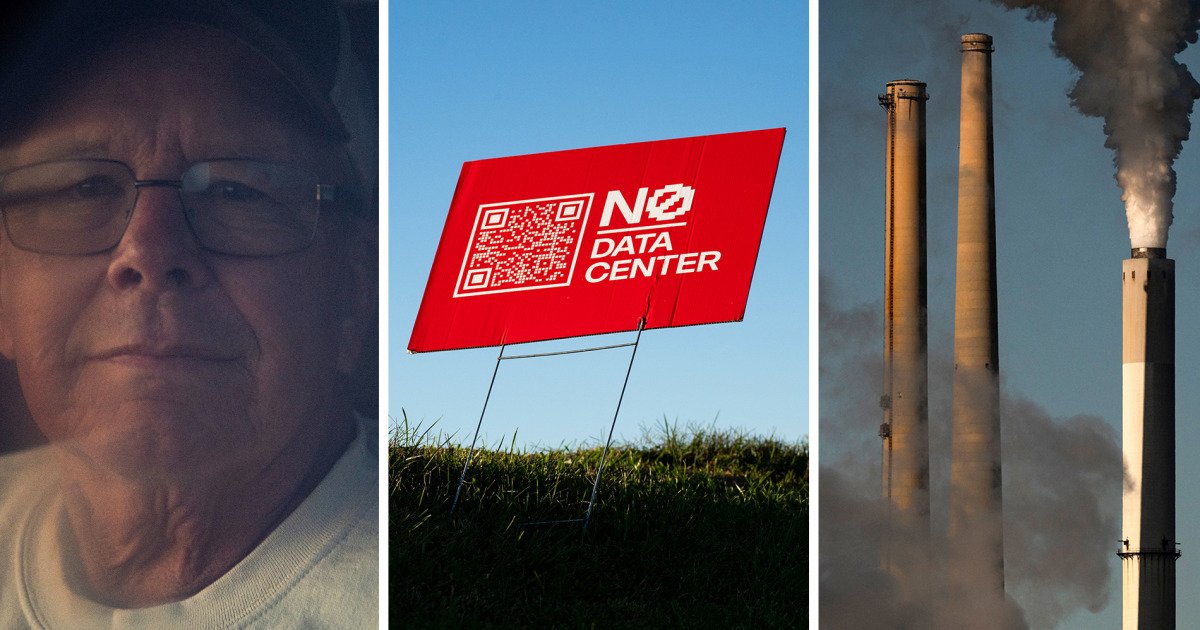The largest technology company backing the project remained undeclared, using confidentiality agreements and registering the proposal through a smaller company, Spark Innovations LLC, which locals believed was a shell company.
Saint Charles Mayor Dan Borgmeyer, bound by a confidentiality agreement, said he pleaded with developers for months to allow him to share details, but they refused, citing concerns about competition.
The backers of Project Cumulus eventually pulled out. In August, Saint Charles became the first city in the country to enact a year-long ban on data center construction.
Similar bans have been passed and proposed in dozens of counties and municipalities across the country, including St. Louis, Oldham County in Kentucky and Jerome Township in Ohio.
In Arizona, the secrecy of data center developers backfired.
Pima County officials were bound by a confidentiality agreement over “Project Blue,” a $3.6 billion proposal put forward by Amazon Web Services, according to a one-page county memo that NBC News obtained through a public records request. The project, which would have been built on the outskirts of Tucson, was revealed through a leak to the local media Arizona Luminaria.
Dr. Matt Heinz, a member of the Pima County Board of Supervisors, said he didn’t even realize he was covered by the agreement until, he said, a spokesman for the developer called him to accuse him of violating it by speaking to a local newspaper.
“I just have a lot of problems with the general idea that I, as an elected official representing more than 200,000 people in Pima County, can be bound by the parameters of a confidentiality agreement with a private for-profit entity,” Heinz said. “It seems like there might be a natural conflict with what I have to do to serve my constituents.”
Because Pima County officials were bound by the NDA, Tucson city leaders, whose city utilities would have been responsible for supplying water and power, said they were left in the dark until the end of the process.
“The lack of community involvement from the jump created a lot of mistrust,” said City Council member Nikki Lee. “I have never seen Tucson as united in opposition to anything as it was to this project.”
In response to the proposal and the lack of information, residents built their own dashboard to try to quantify Project Blue data and water consumption. “We estimated that Project Blue would consume more energy than all the homes in Tucson combined,” said Ed Hendel, whose company Sky Island AI created the panel.
After public outcry, the Tucson City Council killed the project. The Pima County Board of Supervisors also voted to dissolve the NDAs 90 days before any county body votes.
Keep silent to remain competitive
The data center industry is a fast-moving and fiercely competitive space, where companies consider secrecy essential to protect trade secrets and stay ahead of their rivals. Some local officials, caught between corporate demands and public accountability, said they felt pressured to sign confidentiality agreements to keep their communities in the running.
Mason County Attorney John Estill, who signed a confidentiality agreement for the project proposal, said county leaders would prefer not to be bound by a confidentiality agreement, but maintained it is the only way for elected officials to stay informed about the company’s plans.
“Either you want your government to court businesses and pursue development in your communities or you don’t. And if you want your government to court businesses and pursue growth in your local economies, then, unfortunately, NDAs are part of the picture,” Estill said.
But many residents don’t see it that way.








